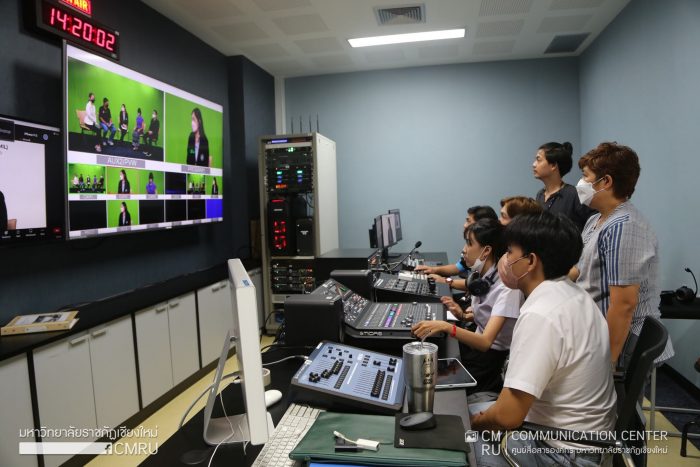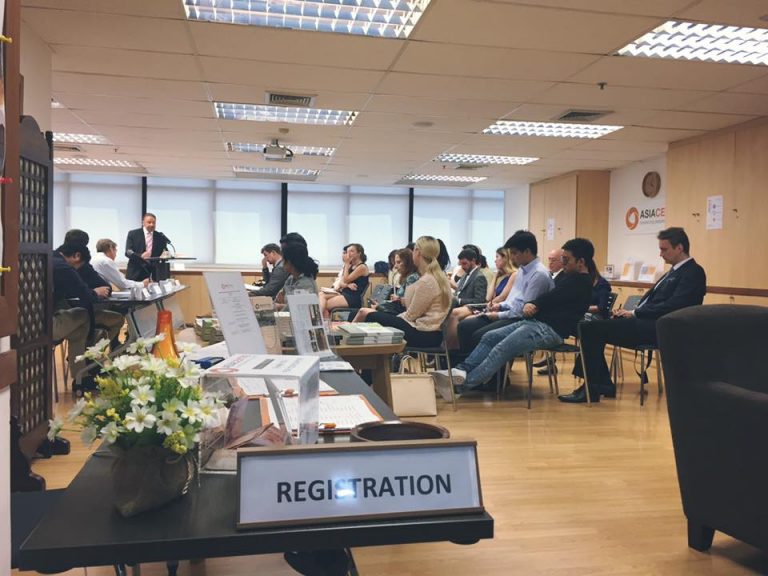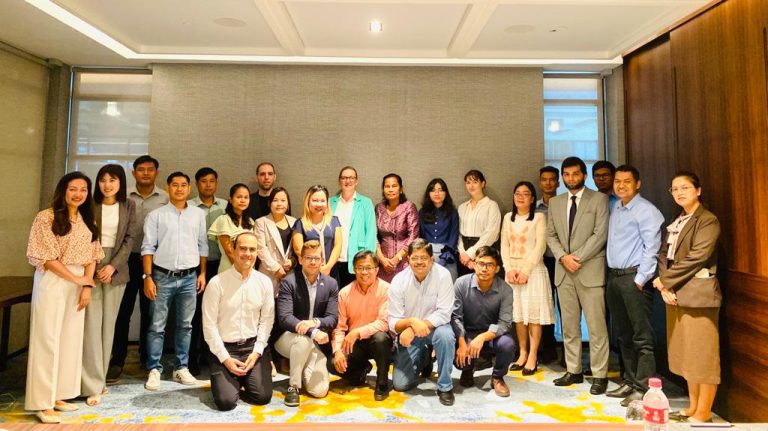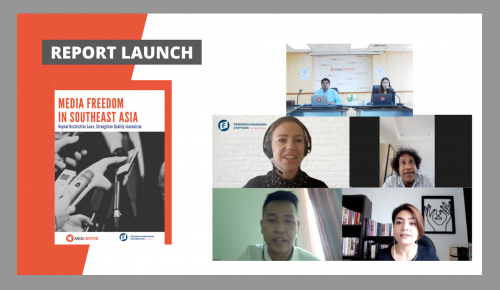
Disinformation is a major issue in Southeast Asia and Thailand is not an exception. However, media literacy education can be a good tool to tackle the negative effects of disinformation. This was the key takeaway from the panel discussion, “Media Information Literacy in Southeast Asia and Thailand” held on 5 August 2022 at Chiang Mai Rajabhat University.
The event was organised by Asia Centre in collaboration with Friedrich Naumann Foundation (Thailand Office), and in partnership with Chiang Mai Rajabhat University, Payap University, Maejo University and the Office of National Broadcasting and Telecommunications Commission (NBTC).
The panel, moderated by Assistant Professor Dr. Napat Ruangnapakul from the Faculty of Information and Communication, Maejo University, consisted of Dr. James Gomez, Regional Director of Asia Centre, Assistant Professor Dr. Taien Layraman, Assistant to vice President for Administration and Finance, Payap University, Rotchanakorn Baengthit, Lecturer at the Department of Communication Arts, Chiang Mai Rajabhat University and Dr. Tri Bunchua Executive Director, Executive Director at the Broadcasting Consumers Protection Bureau, the Office of National Broadcasting and Telecommunications Commission.

During the COVID-19 pandemic, there was a surge in disinformation obstructing access to accurate health information. While there have been different attempts by governments, CSOs and tech companies to counter disinformation with fact-checking initiatives, media information literacy (MIL) is increasingly seen as an effective tool against disinformation by strengthening the capacity for people to critically engage with online content and navigate the digital world.
Starting the discussion, Asia Centre’s Dr. Gomez provided an overview of the current state of media information literacy in Southeast Asia. The key point made was the importance of ‘media ethics’ as a side-by-side approach to media information literacy programs given the rising number of citizen content producers.

The regional overview was followed by perspectives from Thai universities and the government unit. Dr. Taien Layraman, Payap University, highlighted the importance of focusing on customer behaviour and their susceptibility to fake advertising, while Rotchanakorn Baengthit, Chiang Mai Rajabhat University and Dr. Tri Bunchua, National Broadcasting and Telecommunications Commission, emphasised collaborations among multi-stakeholders such as academic sector, media professionals and businesses. They pointed to the need to learn best practices from other countries in the region to improve media literacy for people of all ages in Thailand. Dr. Napat Ruangnapakul, Maejo University also suggested online platforms such as Co-Fact and other national fact-checking agencies as relevant tools to help regulate the flow of online false information.

Overall the panellists argued the importance of highlighting the wide use of media literacy on people’s daily life as a way to reach a larger audience and deepen partnership among multi-stakeholders.
The panel was convened in the studio at the Department of Communication Arts, Chiang Mai Rajabhat University, with a green screen, and was live streamed over Facebook with the support of the department’s student team.

The event was reported on local news publishers such as Chiang Mai News and the Public Relations Department Region 3 Chiangmai.



